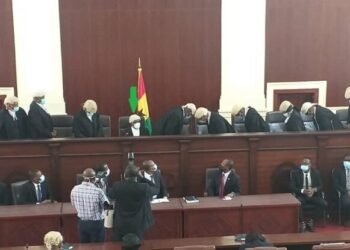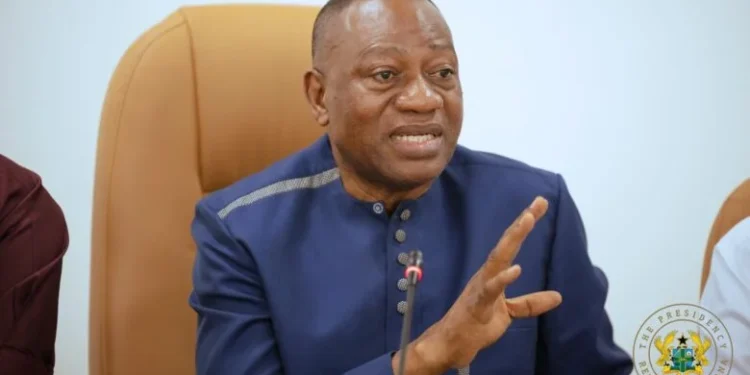Finance Minister Dr. Cassiel Ato Forson has thrown his weight behind calls for a more just and sustainable approach to Africa’s deepening debt crisis, stressing that while cancellation demands carry merit, outright rejection of repayment is not feasible.
The Minister made this clear in Accra after receiving a petition jointly presented by the African Regional Organization of the International Trade Union Confederation (ITUC-Africa) and the Trade Union Congress (TUC) of Ghana.
The petition urged the cancellation of Africa’s US$ 1.3 trillion external debt, warning that repayments are suffocating economies and crippling social progress.
Dr. Forson acknowledged the urgency of the crisis, explaining that while governments must meet their obligations, heavily indebted African countries such as Ghana require a fairer framework that takes into account their vulnerabilities.

He noted that the continent’s challenges have been compounded by the lingering effects of the COVID-19 pandemic, soaring inflation, and currency depreciation.
“There are differences between ‘we can’t pay’ and ‘we won’t pay.’ We can’t pay means something significant has happened. For example, you saying you will not pay means you have the resources but you deliberately don’t want to pay. That is debt repudiation.
“But when you say you cannot pay, it means something significant has happened as to why you cannot pay”
Dr. Cassiel Ato Forson, Finance Minister
Forson underscored the importance of distinguishing between refusal to pay and inability to pay to point out that many African states have reached a stage where debt sustainability is no longer realistic.
He observed that 23 countries on the continent have already seen debt service costs overwhelm critical public spending, leaving little room for investments in education, healthcare, and infrastructure.

As a result, he stressed that Ghana’s ongoing restructuring of both external and domestic debt illustrates the urgent need for international creditors to adopt a more humane, inclusive mechanism for resolution.
Petition from African Unions
The ITUC-Africa and TUC petition argued that Africa’s massive debt service obligations are diverting resources away from schools, hospitals, and employment programmes.
It warned that unless external debt is written off, African nations will remain trapped in austerity, unable to fund development priorities, emphasizing that the continent’s borrowing burden has reached unsustainable levels, threatening the future of younger generations.
They further argued that the international financial system is tilted against Africa, forcing countries to spend more on interest payments than on essential services.
Dr. Forson’s remarks come at a time when global discussions on debt relief are regaining momentum. Civil society groups, unions, and policymakers across Africa are intensifying advocacy to prevent what they describe as a “looming debt trap.”
The growing push reflects concerns that without radical changes, African economies risk sliding into deeper dependency and austerity measures that exacerbate poverty.

The petition received in Accra adds to the momentum built earlier in the year during regional debt justice rallies. At one such rally, Ghana’s Trade Union Congress insisted that the country’s debt burden of over GHS 800 billion had already denied citizens essential development.
The unions reiterated that without decisive action, governments would continue struggling to balance loan repayments with meeting basic national needs. Dr. Forson’s position, while not fully aligning with the unions’ demand for total cancellation, reflects Ghana’s determination to push for fairer terms internationally.
By recognizing the unsustainable nature of debt service costs while cautioning against outright repudiation, he has placed Ghana at the centre of Africa’s call for a balanced solution.
READ ALSO: Akosua Agyapong Advises Yaa Jackson Over Her Wild Lifestyle























